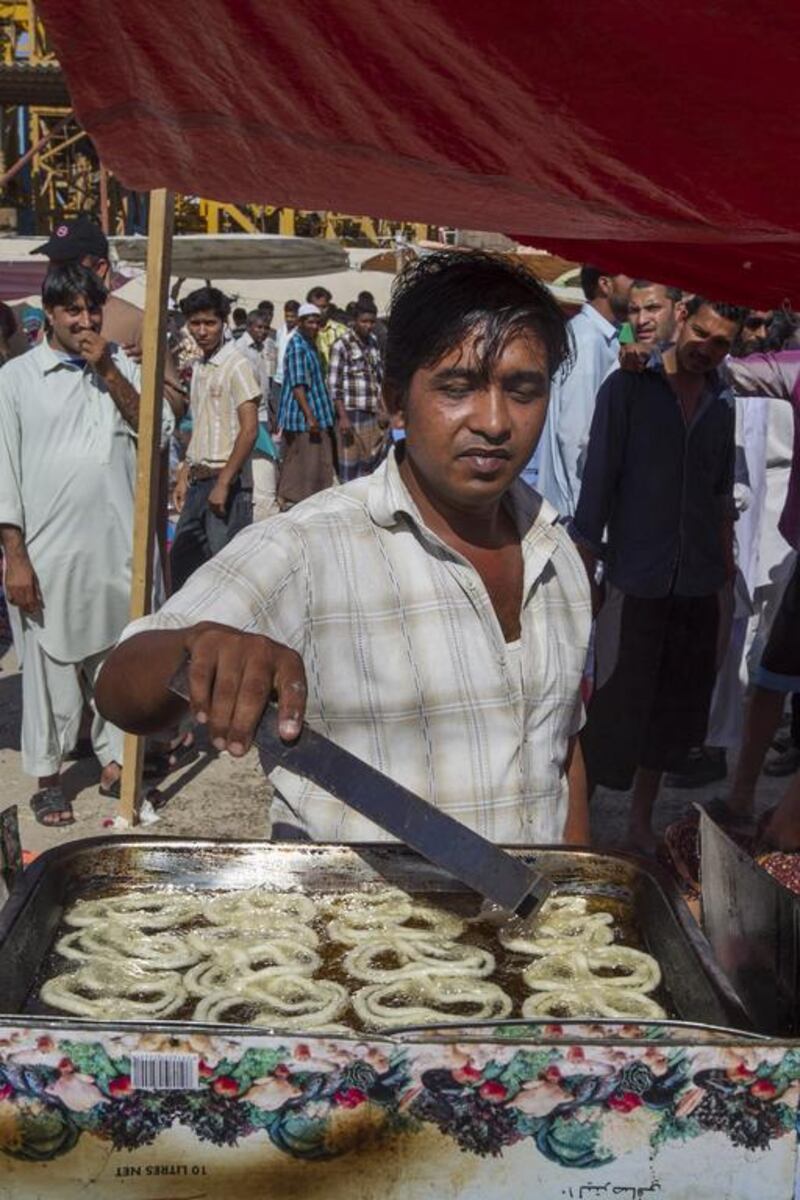ABU DHABI // Dozens of stalls selling popular snacks are rigged up at Friday labour camp bazaars. Both cooks and customers are workers – they bring gas stoves, big frying pans and cooking oil.
The business starts from 8am and they remain until sunset.
“It is really good,” says Alaaddin, who was eating jalebies, a popular snack among south Asian workers.
“I bought them for Dh2 only.”
Bangladeshi Alaaddin earns Dh1,200 a month as a painter in Abu Dhabi. When asked about the health concerns, considering the food was being prepared on the roadside, he says: “It’s hot – he just cooked it in front of me.
“Cleanliness is not good here, but he cooked it now and it wasn’t left there unattended since morning.”
About 10 of the stalls outside the International City Abu Dhabi (Icad) labour camp were selling jalebies the day The National visited.
This snack is made by deep-frying a wheat flour (maida flour) batter in pretzel or circular shapes, which are then soaked in sugar syrup.
Jelebies are popular in the subcontinent during Ramadan and Diwali, a Hindu festival, and most of the workers in the UAE come from these countries.
Bangladeshi Joy Shargat, a worker in a marble tile company, was frying jalebies outside Icad gate number two.
“Every Friday we put up this stall here and fry jalebies.”
Mr Shargat earns Dh500 a month in his regular job and says he fries 10 kilograms of the snacks in a day.
“All my jalebies are finished by the end of the day.”
Another deep-fried snack is pakora, made of potato or onion with a mixture of wheat flour, green chilly, coriander and spices.
A kilogram of jalebi costs Dh10 while pakora is priced at Dh20 a kilogram. At a regular restaurant, jalebies can cost up to Dh20 a kilo.
Pakistani Mohammed Shakeel, a 20-year-old painter, was frying pakoras.
“I cook about five kilograms a day and finish all by the end of the day.”
Pakistani Mohammed Aasil, a mason, had several colourful jalebies in his frying pan. When asked why he does this when he also has a regular job, he responded angrily.
“My salary is Dh520 a month. How can I manage my expenses on this small salary?
“That’s why I have to do this.”
anwar@thenational.ae






